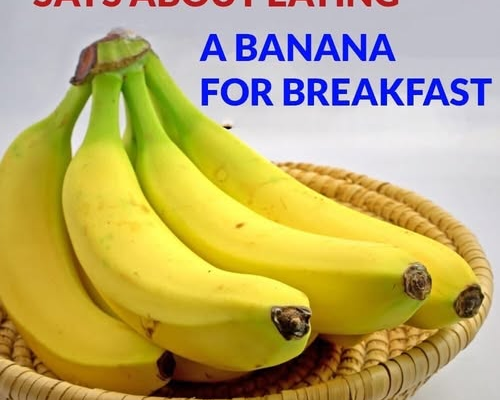
Breakfast is often hailed as the most important meal of the day—and for good reason. After a night of fasting, your body craves energy and nutrients to jump-start metabolism, replenish glycogen stores, and support focus and productivity throughout the morning. Among all the quick and easy options available, the humble banana remains one of the most popular choices. But is it truly as healthy as we believe?
Bananas are undeniably convenient. You don’t need to wash, peel with a knife, or prep them in any special way—just grab and go. This simplicity, combined with their natural sweetness and creamy texture, makes them a favorite not just among adults but also children, athletes, and anyone in a rush.
Nutritionally, bananas offer an impressive profile. They’re a strong source of vitamin C, a crucial antioxidant that supports the immune system by protecting cells from free radical damage and aiding in collagen production. They also provide vitamin B6, which plays a key role in converting food into energy and supporting brain health by contributing to neurotransmitter production.
A single medium banana contains about 3 grams of dietary fiber, which aids digestion and helps maintain regular bowel movements. This fiber content can also slow the absorption of sugar, reducing sharp spikes in blood sugar levels and providing a sense of fullness—though this effect varies depending on what else you eat with it.
Another standout nutrient in bananas is potassium. Just one banana can supply around 10% of your daily potassium needs. This mineral is vital for heart health, helping maintain normal blood pressure levels and reducing the risk of stroke. It also supports muscle function and fluid balance in the body.
Despite these benefits, bananas do have a downside if eaten on their own. They’re relatively high in natural sugars—about 14 grams per medium banana—and low in protein and healthy fats. While these natural sugars provide a quick energy boost, they can also cause a sudden spike and crash in blood sugar if not paired with other nutrients. This is why some people might feel hungry or sluggish soon after having only a banana for breakfast.
To make bananas a more complete and sustaining breakfast option, it’s wise to pair them with a protein or fat source. Spreading peanut or almond butter on banana slices can add healthy fats and protein, slowing down sugar absorption and helping you feel fuller for longer. Adding banana to a bowl of Greek yogurt or overnight oats introduces additional protein and probiotics for gut health. Another easy option is to enjoy a banana with a handful of nuts or seeds, which also contributes heart-healthy fats and minerals.
For those looking for even more variety, bananas can be sliced into smoothies with spinach, chia seeds, and protein powder, or layered on whole-grain toast with nut butter and a sprinkle of cinnamon. These combinations not only enhance flavor but also create a more balanced nutrient profile that supports sustained energy and better satiety throughout the morning.
In short, while bananas alone aren’t the most complete breakfast choice, they are undeniably nutritious and versatile. By being mindful of what you pair them with, you can transform a simple banana into a well-rounded meal that supports overall health, energy, and focus.
So next time you reach for a banana in the morning, think of it as a delicious foundation rather than the whole meal. With a little creativity and balance, it can help set the tone for a strong, energetic start to your day.


